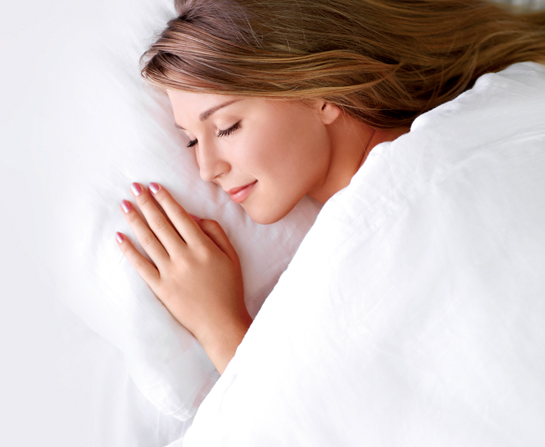Sweet Slumber Awaits You
May 2, 2022 Return

There’s nothing like a good night’s sleep. You wake up all reenergized, feeling like you are capable of taking on the world. You are in the cheeriest of moods as if nothing can bring you down. Ah, the power of sweet slumber. Sadly, not everyone is privy to that. Many of us are experience sleep deprivation in one or another. In fact, a study found that as many as one in three Malaysian adults suffer from insomnia!
Don’t think you have insomnia? Let’s see, do you find it difficult to drift off into dreamland despite being drained to the bone? Are you able to fall back asleep quickly when awakened? When you do manage to get some shuteye, do you wake up feeling more exhausted than ever? Have you become so used to feeling irritable and drowsy during the day? If you have been nodding along to these questions, it is very likely that you have insomnia.
Alright, so I have insomnia, you may think to yourself. But sleep deprivation can’t be that bad, right? Wrong. The same study reported those with insomnia were more prone to depression, poor memory, loss of concentration, fatigue, reduced work productivity and poor general health. That’s not all. Other studies have noted a significant correlation between long-term sleep deprivation and an heighted risk of complications such as obesity, diabetes and heart disease. That’s a rather long list of health issues, isn’t it?
Oh Mr Sandman, where are you?
Now, before you whizz off to the nearest pharmacy for some sleeping pills or over-the-counter sleep aids, you will be glad to know that there are other methods you can try to relieve your insomnia. In fact, experts generally recommend taking medication as a last resort and even then, on an extremely limited basis.
Here’s a rundown of some tried-and-tested methods which might be of help you get the sweet rest you have been missing out on.
- Invest in good mattresses and pillows. We practically spend a third of our lives in bed so the investment is worth every ringgit. ‘Bend test’ your pillow: If you bend it in half and it resumes its original position, it’s a keeper.
- Don’t nap; it only makes sleeping at night tougher.
- Avoid stimulating activities before bedtime. Stay away from rigorous exercise, the TV, video games and such.
- Have a fixed sleep schedule, even on weekends and holidays.
- Go easy on alcoholic and caffeinated beverages. In fact, cease your caffeine intake at least 8 hours before hitting the sack.
- Abdominal breathing. Take deep, slow breaths. Ensure it involves not just your chest but your stomach, ribcage and lower back. Inhale through your nose and exhale through your mouth.
- Progressive muscle relaxation. Beginning with your feet, tense the muscles tightly while you count to 10, then relax. Repeat this for every muscle group, from your feet to your head.
- Dietary & herbal supplements. While they may not work for everyone, supplements like valerian, hops, melatonin and blue passion flower can help treat insomnia due to their sedative properties. If you plan on trying them, consult your doctor first as they may have side effects and interactions with other medicines.
References:
Helpguide. Available at www.helpguide.org
NHS. Available at www.nhs.uk
Salter S. et al. (2010). Treating primary insomnia – the efficacy of valerian and hops. Aust Fam Physician; 39(6): 433- 437.
WebMD. Available at www.webmd.com
Zailinawati A. et al. (2008). Epidemiology of insomnia in Malaysian adults: a community-based survey in 4 urban areas. Asia Pac J Public Health; 20(3): 224- 233.
If you like this article, do subscribe here.
